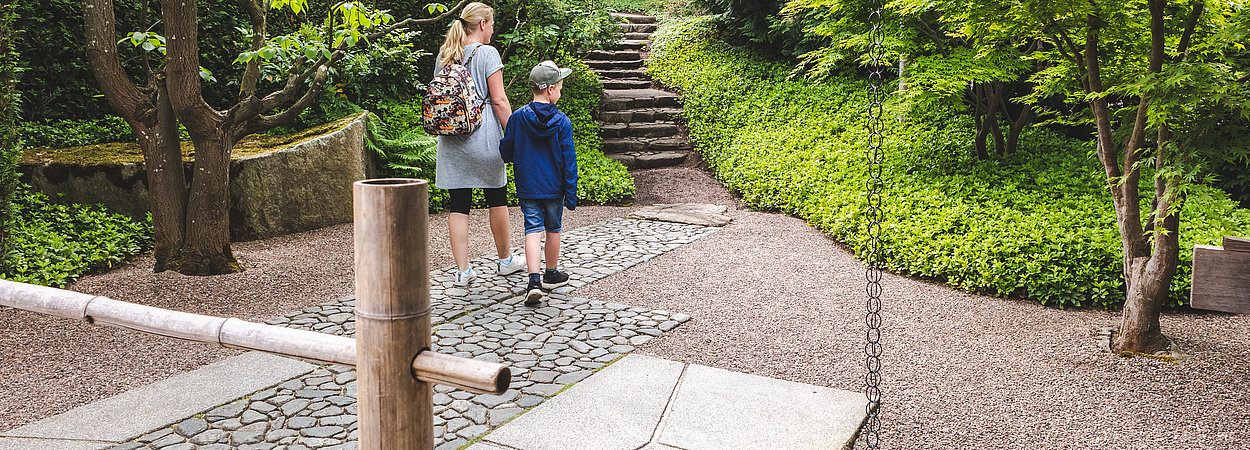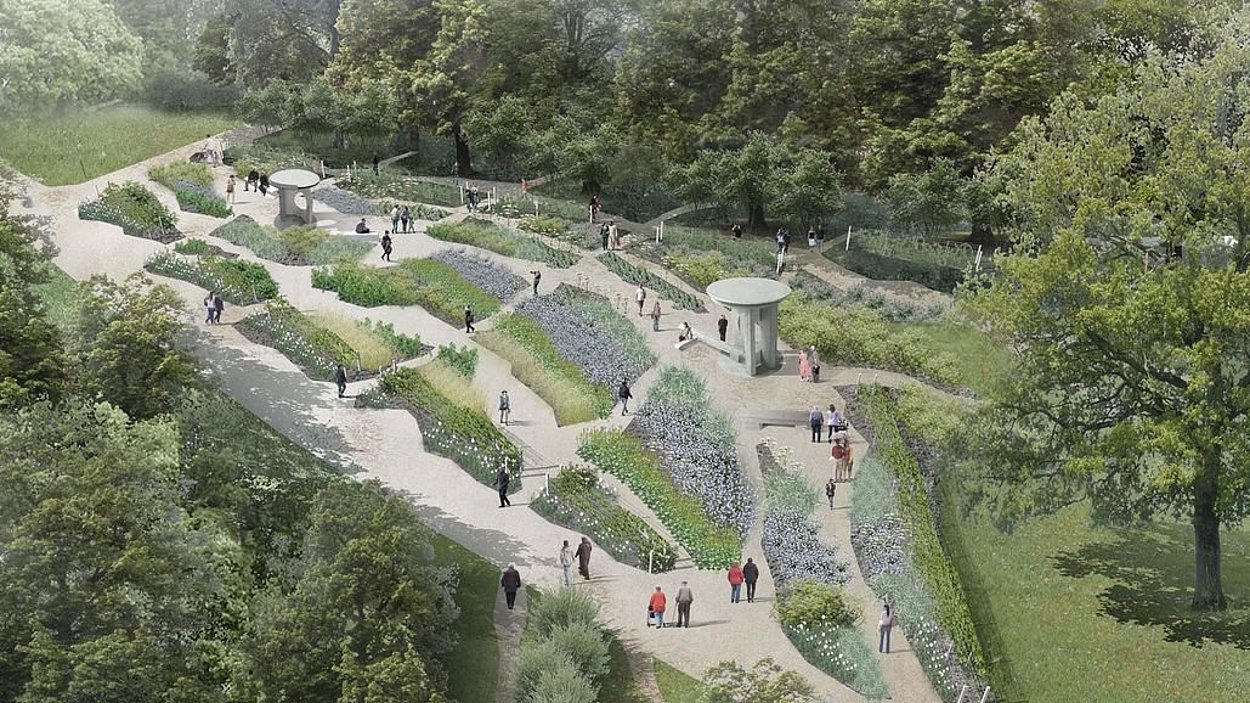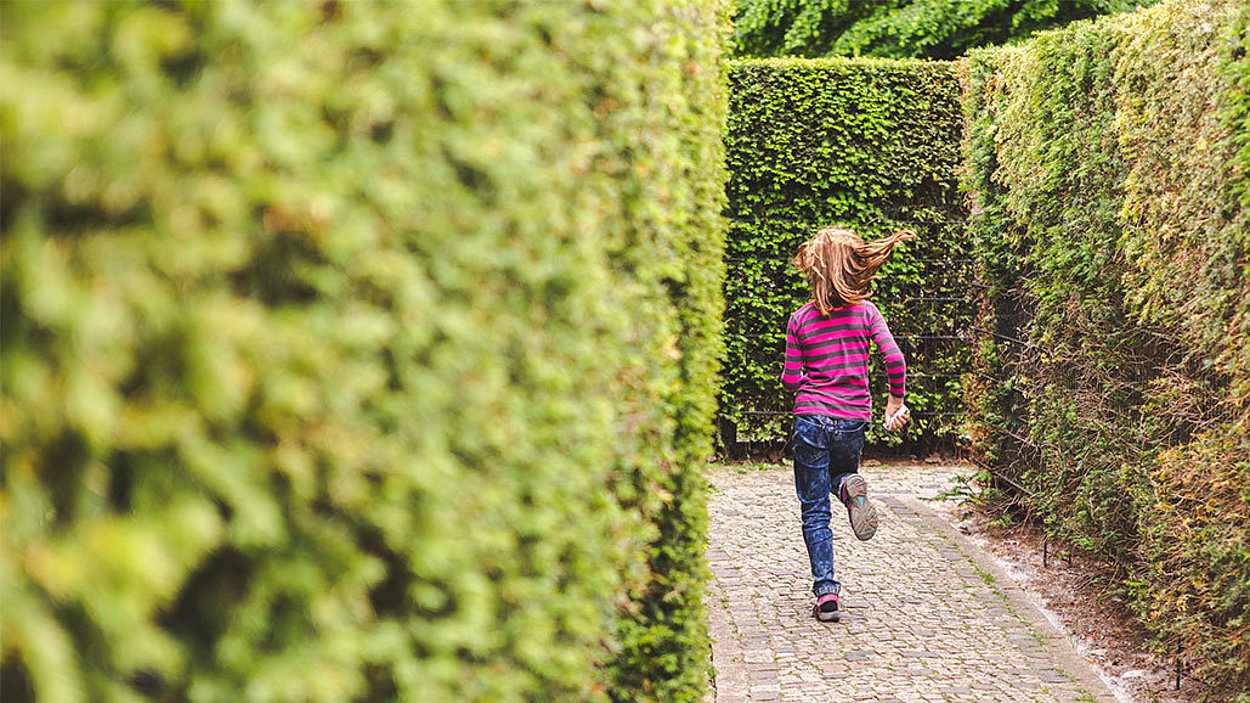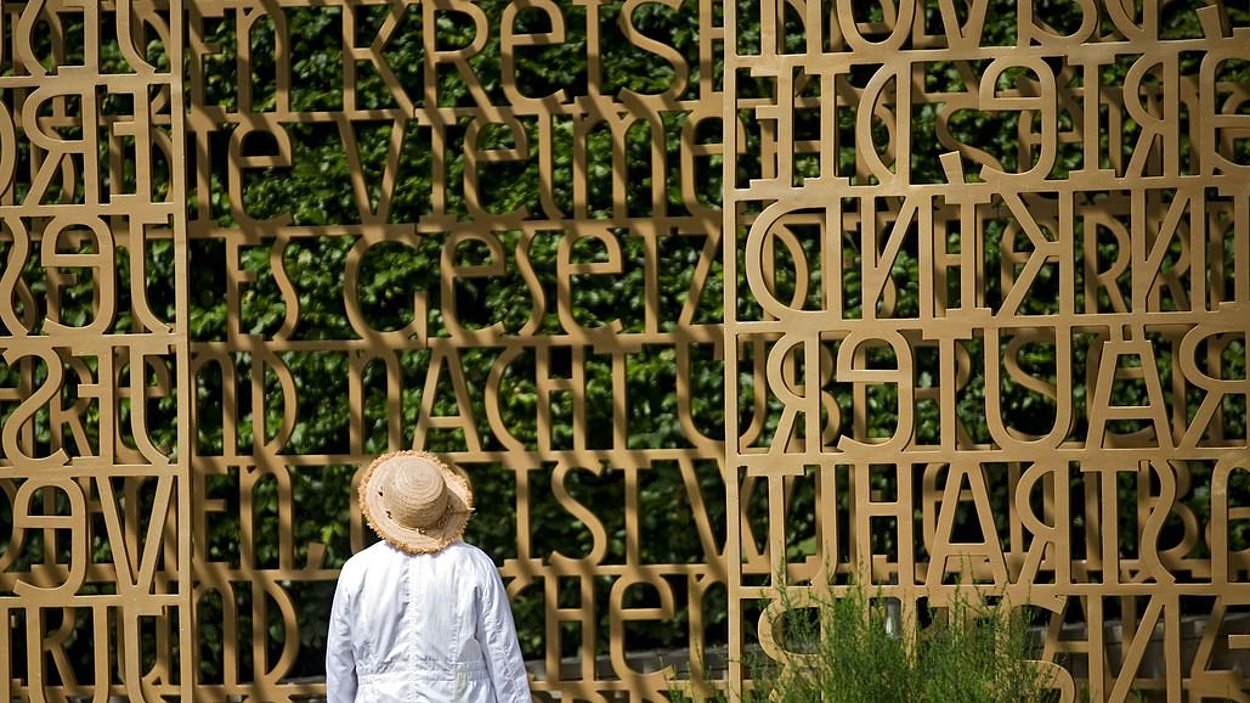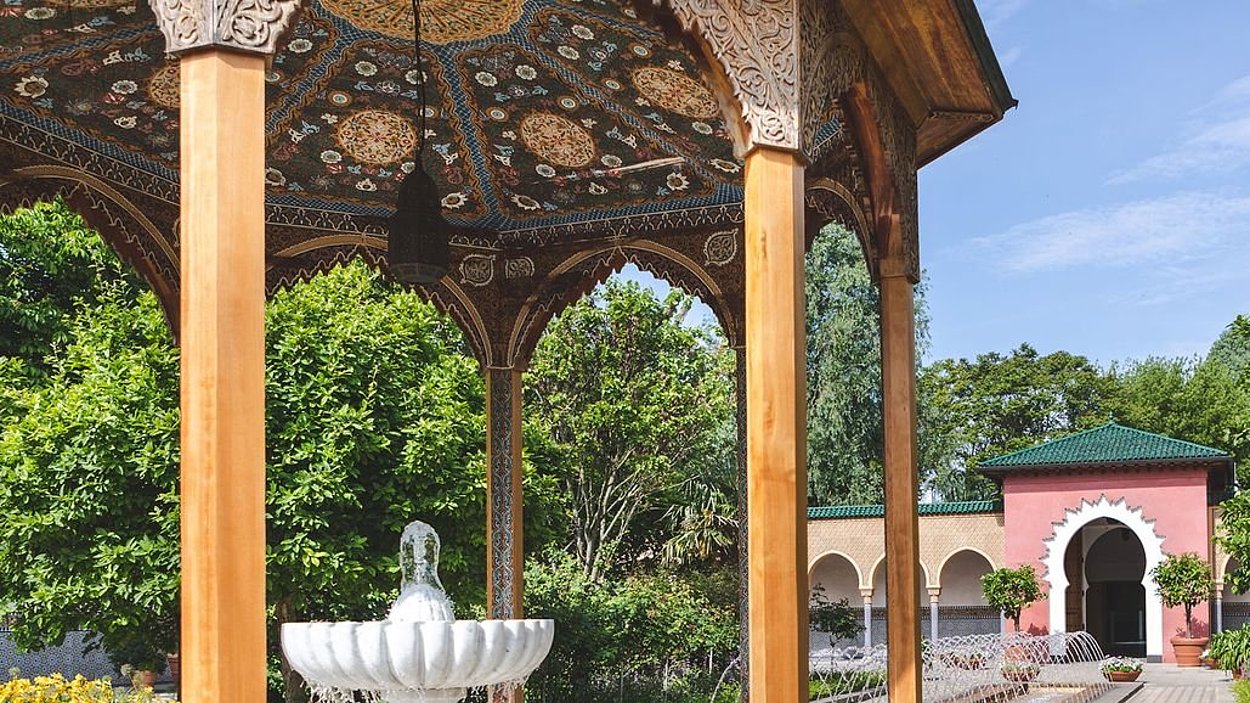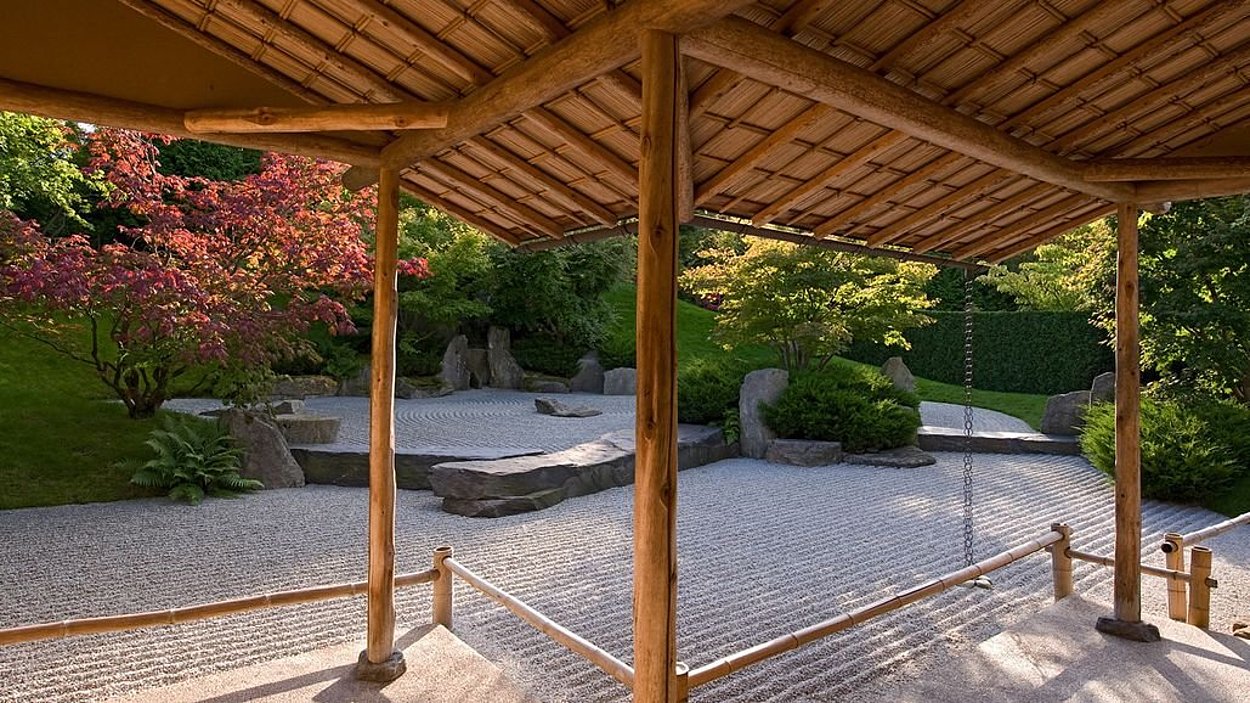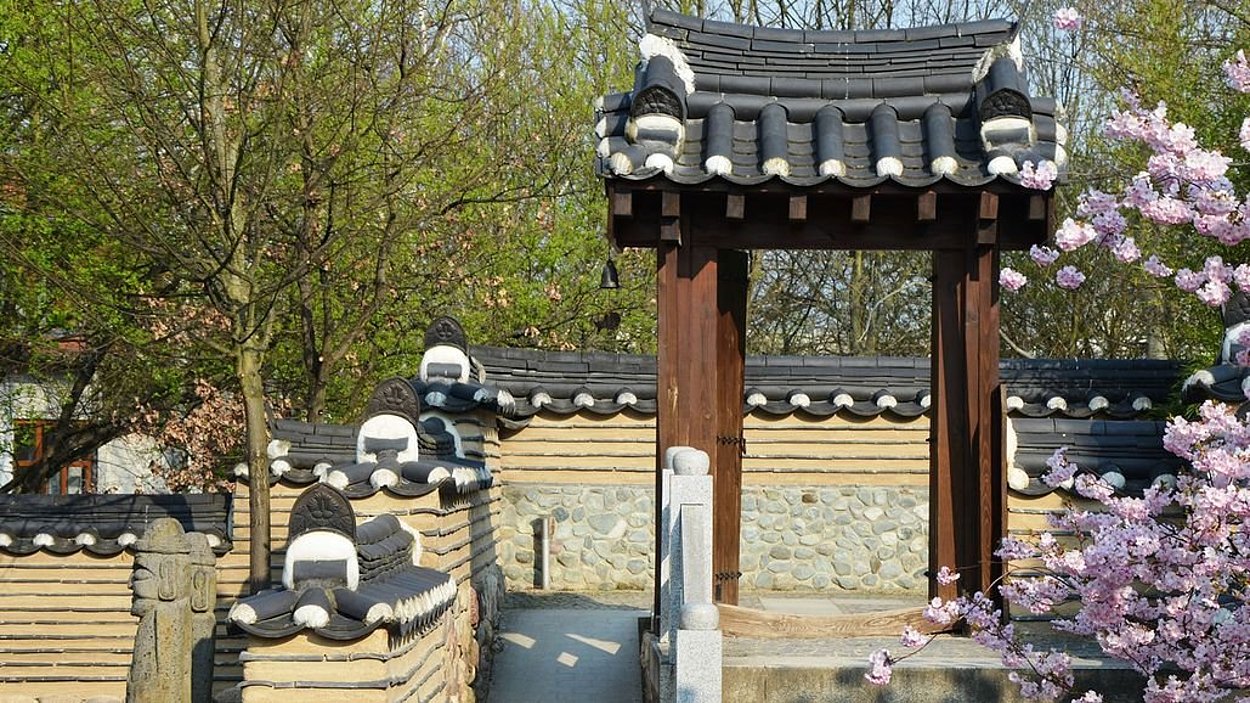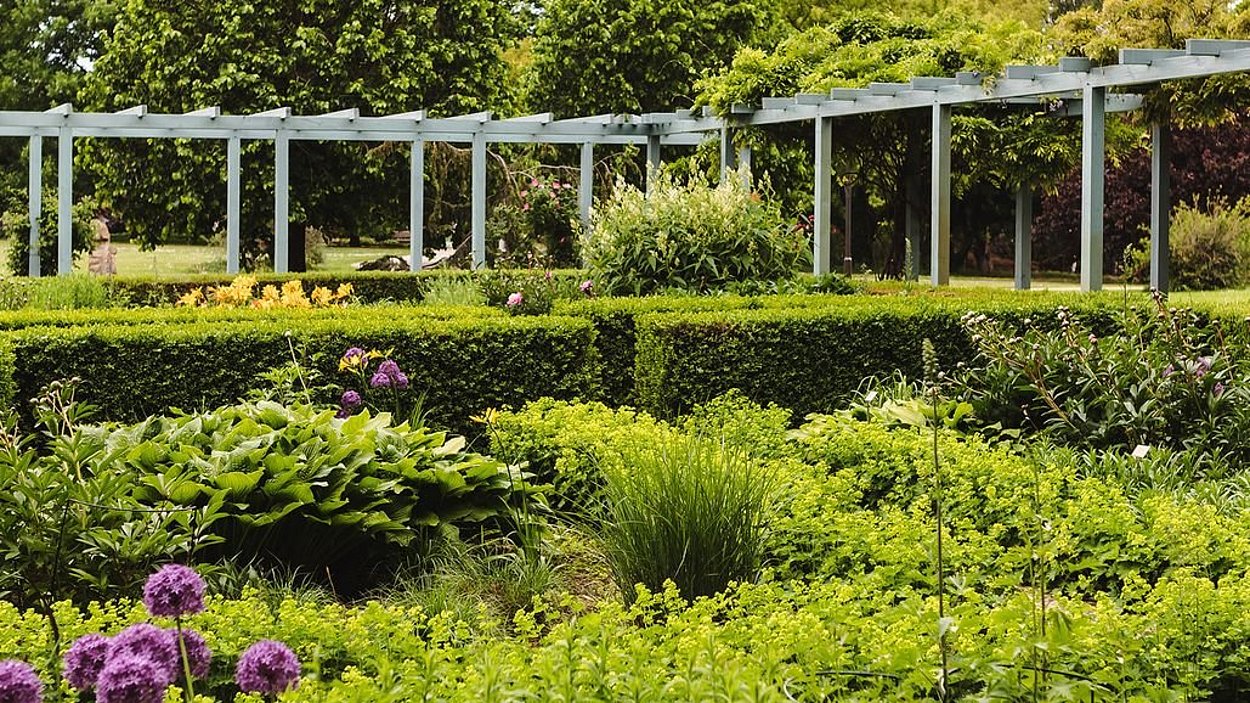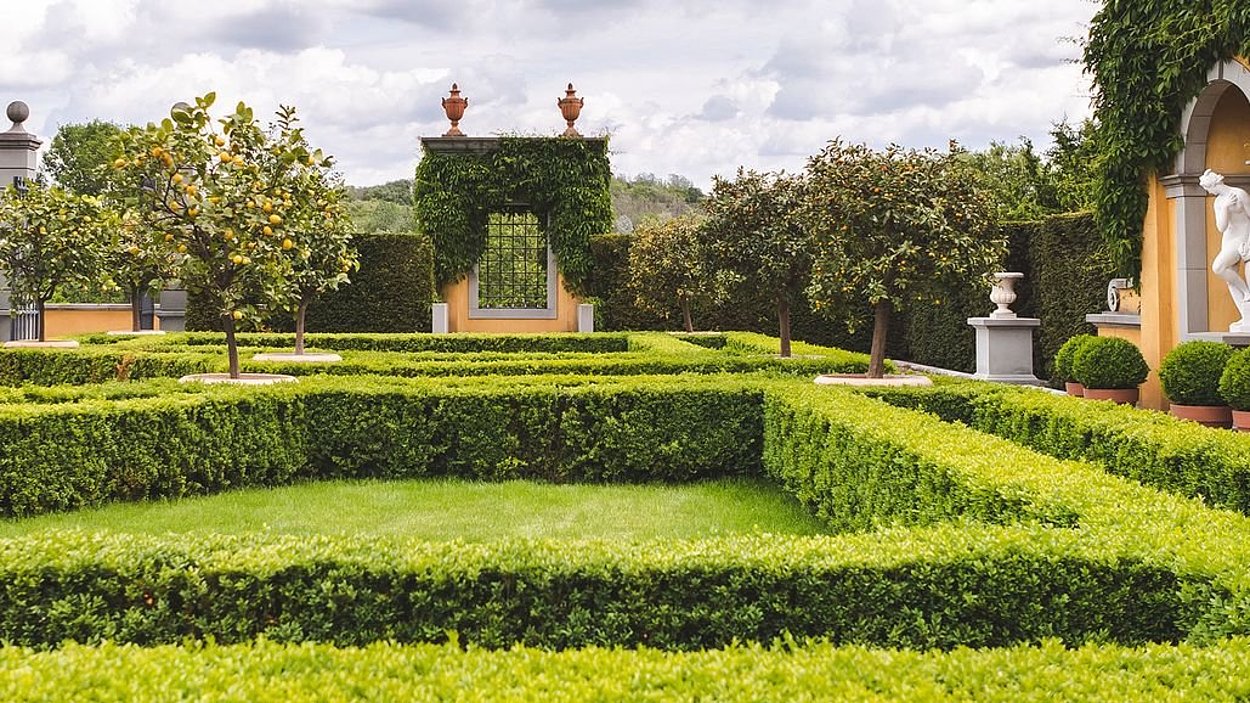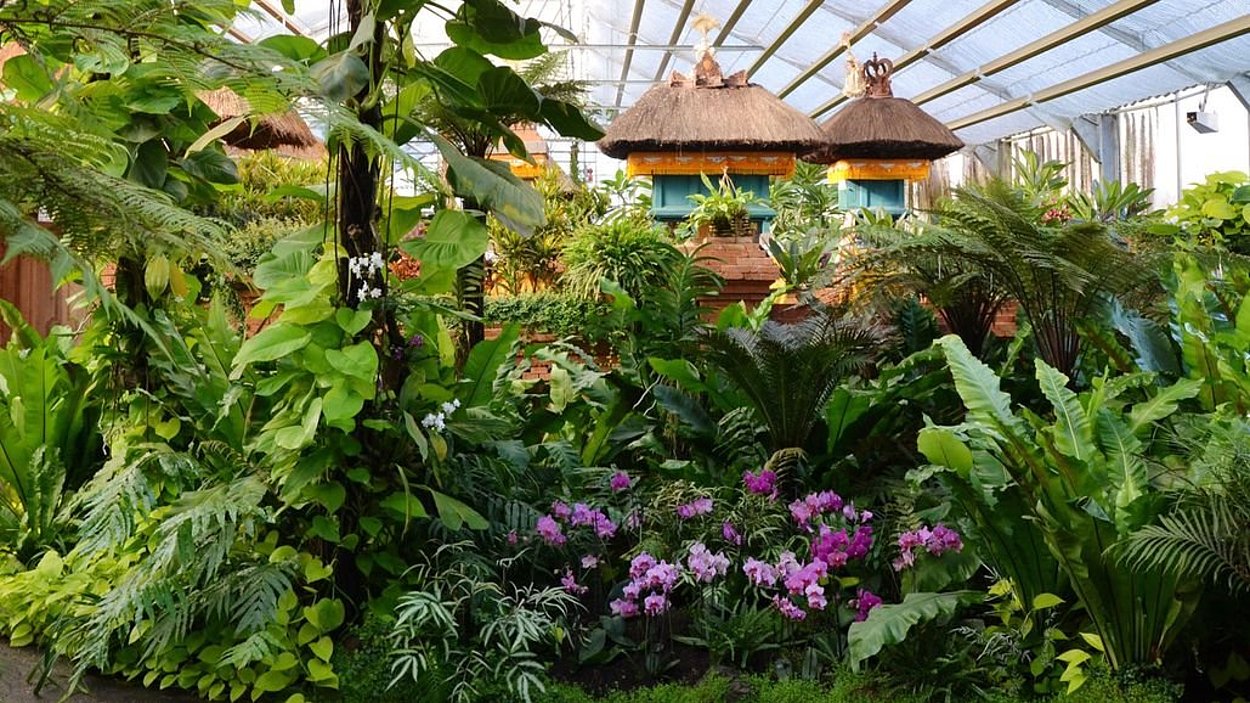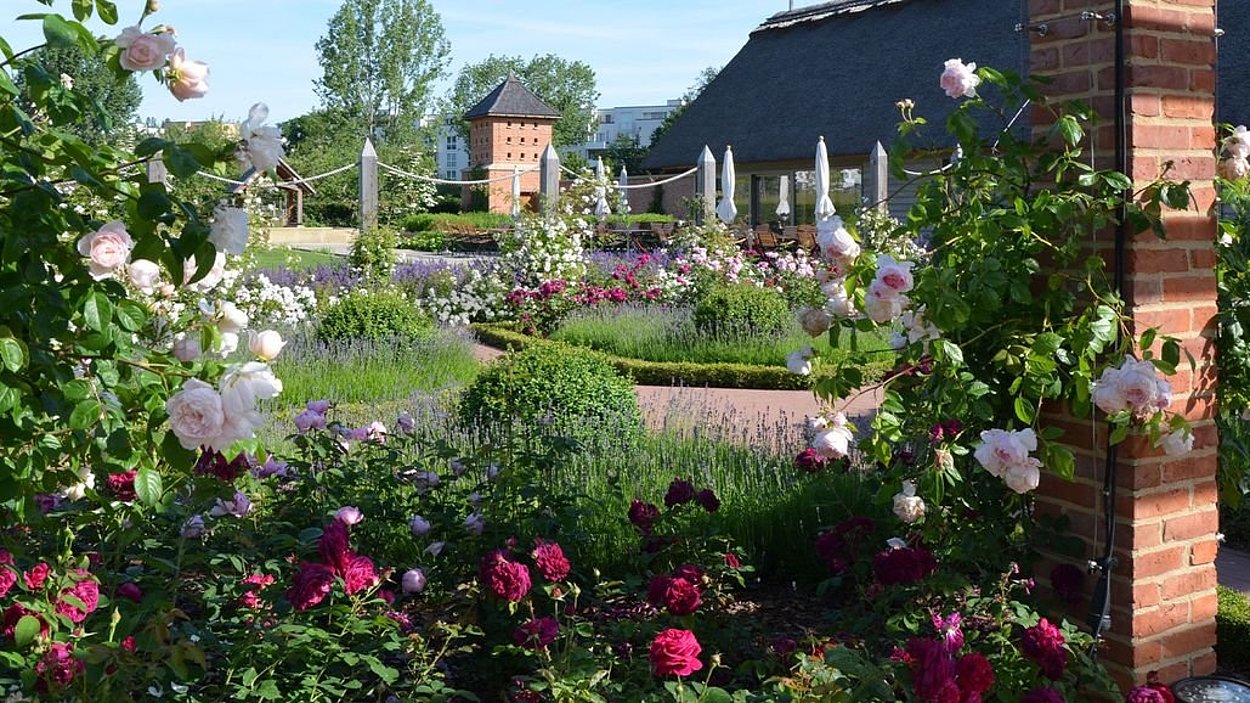Japanese Garden
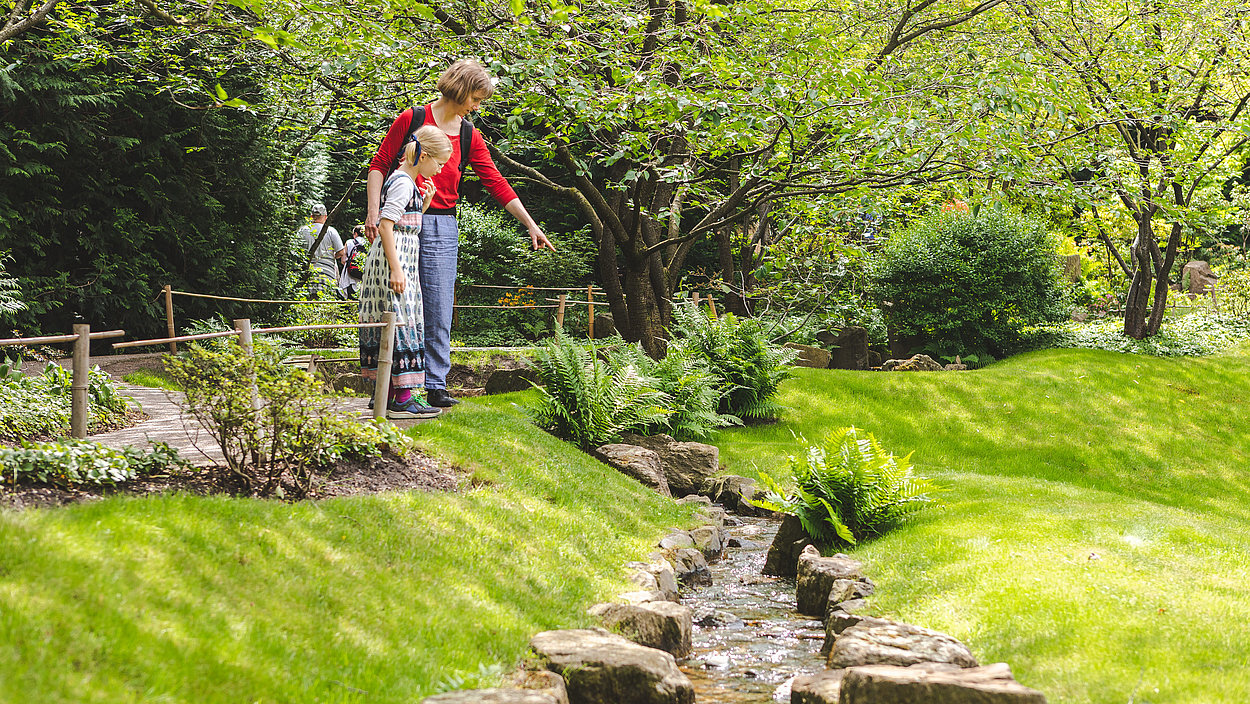
Stones as Storytellers
In Japan stones have a soul. Augen gneiss stones, in particular, are millions of years old and carry the stories of times long forgotten within them. There are 300 of them in the Japanese Garden, and if you are quiet enough they may tell you one of their stories. For silence also has a special significance in Japan, since it offers the chance for self-reflection. Incidentally, the construction site was one of the quietest in the history of the Gärten der Welt.
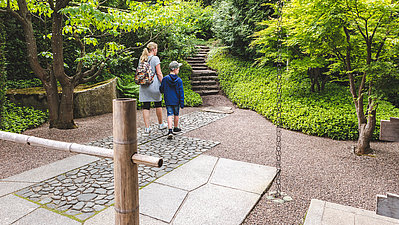
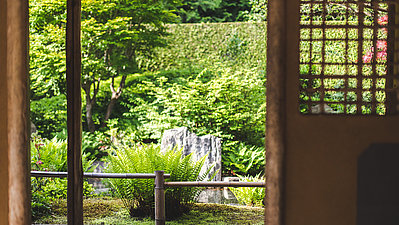
Garden of Confluent Water
Japanese gardens are often a symbolic expression of Japanese philosophy and history. The Japanese Garden in the Gärten der Welt is a result of the twinning of Berlin and Tokyo, and embodies as such the idea of a harmonious coexistence. The leitmotiv of the garden is the water, which on the one hand symbolises the confluence of cultures, and on the other hand refers to the course of history. Once again, the theme of time is taken up by dividing the area into three interconnected gardens, each representing the past, the present and the future.
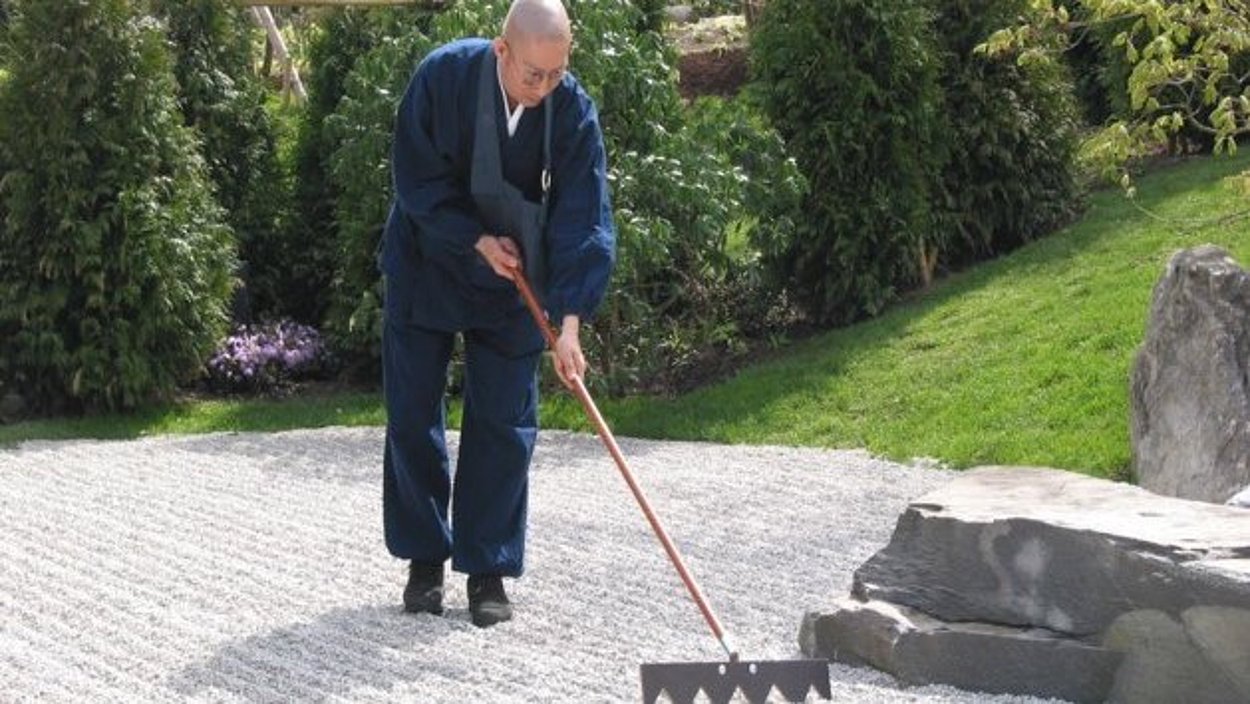
Awe-inspiring architecture
A pavilion, the Chaya, is located in the middle of the three gardens. The small door in the large wooden gate allows you to enter the garden. But you may need to bow your head a bit, as the door is a bit smaller than the average person. This is of course not a construction error, but witty calculus: This gesture encourages you to express your awe, which prepares you for your visit.
The Carp that became a Dragon
In the middle of the garden, visitors will find a symbolic waterfall made of many large and small stones. Inside is a stone carp that tries to climb the waterfall against the current. The picture refers to a central doctrine of Zen Buddhism, which states that once the carp has successfully conquered the waterfall, it transforms into a dragon. This allegory of overcoming great hurdles is a component of the symbolic concept of the Japanese Garden. The "dry waterfall" symbolises the future and will never carry water, as the future in the present is uncertain and not "filled".
